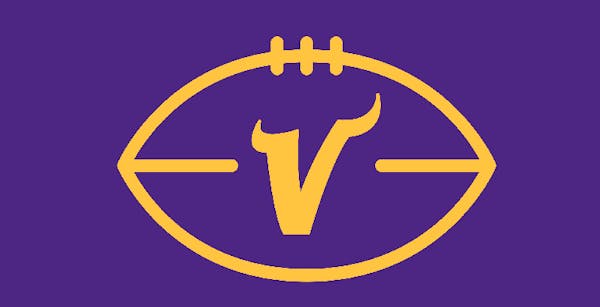 See
more of the story
See
more of the story
Don't pay him. Call his bluff. Trade him, if possible, because running backs are basically interchangeable.
One didn't need to search hard to find those sentiments being said about Dalvin Cook in August when his contract negotiations with the Vikings had reached an impasse.
Seems silly now, eh?
Cook's price tag has been shoved deep into the background, at least until he limps off the field again, if that unfortunate time comes. Then you know darn well how the narrative will shift. See, that's why you shouldn't pay a running back big money.
Sorry, it cannot be both ways.
A strong case can be made that Cook is the best all-around running back in the NFL. He's one of the most dynamic players in the league. He makes defenders look like their arms are covered in Crisco. His hop-on-my-back performances the past two games are reminiscent of Adrian Peterson's MVP dominance.
This is why the Vikings paid Cook big money. This is why they built their offense around him. This is why the organization embraced a contrarian philosophy and invested heavily in a running back with an injury history at a time when the NFL practically mandates an opposite approach.
Yep, the Vikings made the right call.
Cook has been nothing short of brilliant in resurrecting hope for this season. He leads the NFL in rushing yards and rushing touchdowns and a bunch of fancy rushing metrics.
He looks like a force of nature in the way he is running the ball, slicing and dicing defenses with bursts of speed, power and elusiveness.
His 70-yard touchdown run put Sunday's win over Detroit on ice and earned a spot on the TV highlight packages, but it was Cook's next carry that had me watching over and over.
Cook took a pitch from Cousins 7 yards behind the line. A Lions defender was right there in position to drill him. Cook somehow managed to keep his eye on the ball with a guy bearing down on him, then catch it, sidestep the tackle and turn a big loss into a 13-yard gain.
That's a special athletic gift.
Cook made it look effortless. He does that a lot. He looks like he's playing the game at a faster speed than everyone else.
At some point, odds are, he will get injured again. The decision to sign him to a five-year, $63 million contract will still be the right call. He is their best and most important offensive player by a mile. Why wouldn't the team value and reward him as such?
The running back position has been devalued in the modern NFL but that doesn't mean the Vikings overpaid Cook or were foolish to commit that kind of money to his position. If anything, they made financial miscalculations on Kirk Cousins and a few others.
The arguments against Mike Zimmer's desired template are well-established: It's a passing league. Quarterbacks should be the focal point of the operation, not running backs. But that's a conversation about Cousins' aptitude and organizational decision to extend him, rather than Cook's value.
Can a team in today's NFL win a championship employing a throwback blueprint? That depends on many factors.
Is the quarterback capable of performing at a championship level if/when the defense stops the run? Is the offensive line a strength or liability? Is the defense fortified enough to hold up its end of the deal?
The Vikings didn't set a new market for the running back position when extending Cook. They found reasonable compromise given his injury history.
Concerns about durability always will be there, especially with Cook's hefty workload, but injury risk is true of any position and any high-priced contract handed out. It was notable that Cook slipped out of bounds at the end of a few runs Sunday rather than put himself in position to absorb unnecessary contact. Smart.
The Vikings offense is functioning exactly how Zimmer wants it, with Cook as the centerpiece. This era of football frowns upon that approach, but the Vikings have a unique talent in the backfield, they paid him accordingly and he's performing at a historically high level.
It's hard to argue with that.



